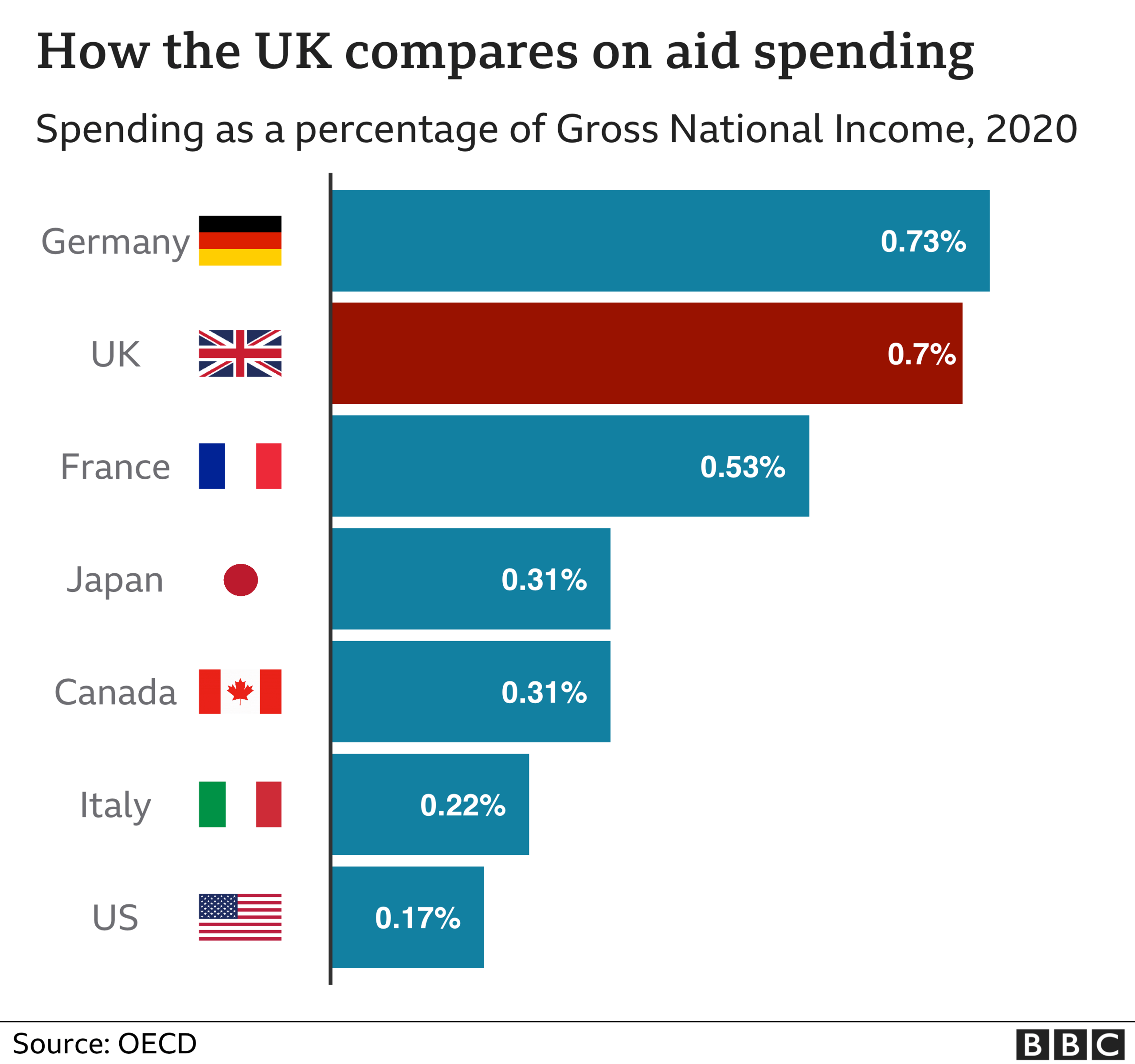Government wins vote to lock in cuts to overseas aid
- Published
The PM says there "must inevitably be consequences" for UK spending as it deals with the Covid pandemic.
The government has won a Commons vote to lock in cuts to spending on overseas aid, despite a rebellion by Tory MPs.
MPs voted by a majority of 35 to keep the budget for international development at 0.5% of national income.
But 25 Conservatives joined Labour and other parties in an attempt to reinstate the 0.7% figure, which was in place until earlier this year.
Prime Minister Boris Johnson said the cut was needed to keep public debt down during the pandemic.
The government has faced cross-party criticism over the reduction - which amounts to almost £4bn - including from all the UK's living former prime ministers.
Many Conservative MPs have spoken out against the move, announced last November despite a commitment to spending 0.7% in the party's 2019 election manifesto. Meeting the figure was made law in 2015.
Charities such as Oxfam and ActionAid have warned that projects are being called off as a result of the cuts.
But the government won by 333 votes to 298, following a three-hour debate.
The Conservative rebels included former Prime Minister Theresa May and ex-cabinet ministers Karen Bradley, Jeremy Hunt, David Davis, Stephen Crabb, Damian Green and Andrew Mitchell.

Opening the debate, Boris Johnson said the government had spent £407bn during the pandemic to "shelter our people from an economic hurricane never before experienced in living memory".
He added: "There must inevitably be consequences."
The prime minister added that the reduction was temporary and that people could "take pride that the UK will still contribute at least £10bn" to aid.
"This is not an argument about principle," he said. "The only question is when we return to 0.7% and my purpose today is to describe how we propose to achieve this shared goal in an affordable way."
Starmer: "No one in the House" is expecting the UK to spend as much on foreign aid as it was spending before Covid
But Labour leader Sir Keir Starmer said the cut was "not in the national interest", adding: "Every member here was elected on a manifesto promise to retain the 0.7% target."
He added: "Cutting aid will increase costs and have a big impact on our economy. Development aid reduces conflict. It reduces disease and people fleeing from their homes.
"It is a false economy to pretend that this is some sort of cut that doesn't have consequences."
Following the result of the vote, Chancellor Rishi Sunak said the "temporary" cut in aid spending would continue as planned.
He added: "Whilst not every member felt able to vote for the government's compromise, the substantive matter of whether we remain committed to the 0.7% target - not just now, but for decades to come - is clearly a point of significant unity in this House."
But former Conservative Prime Minister Sir John Major said: "The government has blatantly broken its word and should be ashamed of its decision.
"It seems that we can afford a 'national yacht' than no-one either wants or needs, while cutting help to some of the most miserable and destitute people in the world."
Oxfam GB chief executive Danny Sriskandarajah described the vote as "a disaster for the world's poorest people".
And Daniel Willis, of the campaign group Global Justice Now, said: "When the inevitable death and suffering from aid cuts hits the news, each and every MP who has voted to sever the UK's 0.7% commitment should know that blood is on their hands."
Last month, 30 Conservative MPs supported an amendment to a parliamentary bill, aimed at forcing the government to meet the 0.7% target.
Another 14 or so Tories would have had to join them in Tuesday's vote to ensure a government defeat.